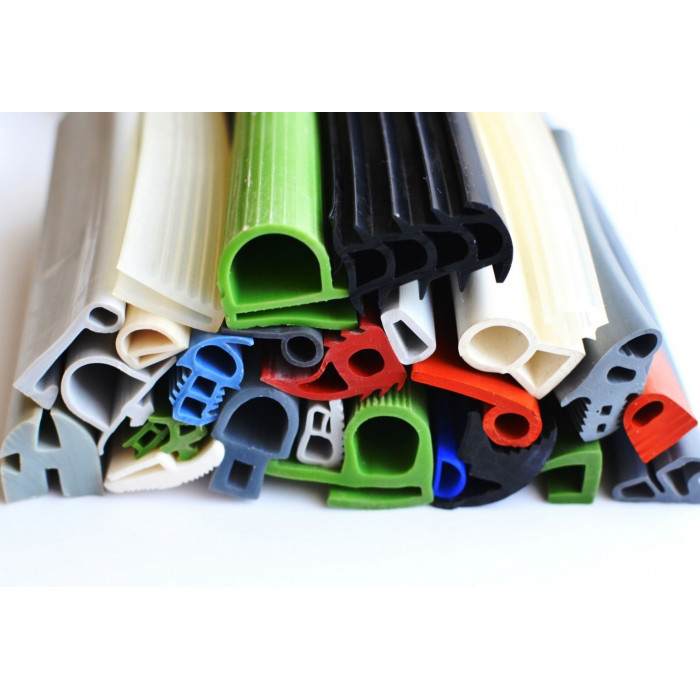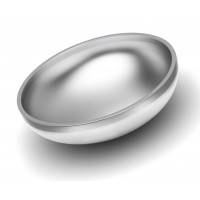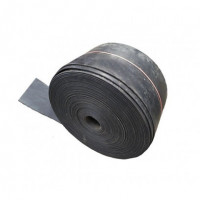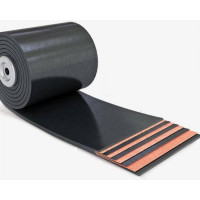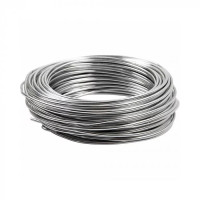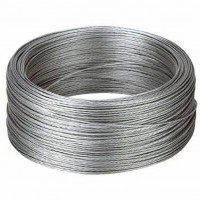Silicone seal Т shaped
- organosilicon (silicone) rubber is a modern material with completely unique properties, unlike simple organic rubbers. Products made of silicone perfectly tolerate temperature changes over a wide range, are impact-resistant and durable in industrial operation, and therefore are widely used in many industries.
Due to the special properties of silicone rubber, today products made from silicone rubber have become very popular, as they are resistant to sea and fresh water (including boiling), salt solutions, alcohols, phenols, mineral oils, acids and alkalis, hydrogen peroxide , ozone, vacuum, exposure to radiation, electric fields, electric corona and arc.
Products made of silicone have increased resistance to high temperatures, they are frost-resistant, non-toxic, with a good coefficient of flexibility and elasticity.
Heat-resistant silicone seal is resistant to sunlight, aggressive media, ozone. Products made of silicone rubber are durable and can work for more than 10 years at an operating temperature of +120C.
CHARACTERISTICS OF THE HEAT-RESISTANT SEALING CORD
- Heat resistance and frost resistance (from -60°С to +280°С);
- Inertness (not toxicity);
- Electrical insulating properties;
- Mechanical and electrical strength;
- Svetoozonostoykost;
- Weather resistance;
- resistance to burning;
- Elasticity and flexibility of products;
- Resistance to vacuum, salt solutions, phenols, alcohols, etc.;
- High strength;
- Low residual deformation;
Silicone seals are made from biologically inert materials based on siloxane rubbers (silicones). In appearance, silicone seals (profiles) resemble products made from ordinary rubber. However, due to the special chemical structure, silicone profile products have a number of properties that allow them to take a special place among rubber elastic materials. Silicone seal retains its performance from -60C to +200C. From frost-resistant types of silicone rubber - from -100C, from heat-resistant types - up to + 300C.
Silicone seals are resistant to ozone, sea and fresh water (including boiling), alcohols, mineral oils and fuels, weak solutions of acids, alkalis.
Profile products made of silicone are resistant to radiation, UV radiation, electric fields and discharges. Silicone seals (silicone profiles) are physiological, inert and non-toxic, so they are widely used in medicine and the food industry. For medicine, a huge advantage is that these products can be repeatedly sterilized with hot air and steam. The properties of silicone products are practically independent of temperature and do not change under the influence of light and air. Thanks to these qualities, the application possibilities of silicone rubber products are extremely diverse and cover all branches of industry.
Silicone seal (profile) withstands prolonged exposure:
high and low temperatures (from -50С to +280С, for a short time up to +320С).
electric field up to 20-30 kV/mm,
ozone, oxygen, various oils,
boiling water, while water absorption does not exceed 1-2%.
silicone sealant is non-toxic, inert to physiological fluids.
silicone rubbers are 10-20 times more breathable than organic rubbers.
silicone sealant is resistant to dilute solutions of salts, acids and bases.
Physical and mechanical properties of silicone sealant (profile):
Tensile strength not less than 60-80 kgf/cm2.
Density 1.2-1.3 g/cm3
Optical indicators, no more than % / mm: light absorption 3,
light scattering 2
Relative tensile strength of silicone sealant, not less than, MPa 6.5
Relative change. ext. after aging in air. at 200C for 72 hours within,% from -25 to +25
Sanitary and chemical indicators of a silicone sealant (profile):
oxidizability, no more than, mg 02/100 s m³ 3
changes in the pH of the extract 1
Operating temperature range from -60С to +200С
Resistance of a silicone sealant (profile) to chemical environments:
Water.
Salts: sodium carbonate, copper sulfate, ferric chloride, sodium chloride.
Bases: ammonium hydroxide, KOH (25%), NaOH (20%).
Silicone sealant is resistant to acids: nitric - (10%), sulfuric - (30-50%), hydrochloric - (10-18%), stearic acid, acetic acid - (30%), phosphoric acid.
Ammonia, oxygen, hydrogen peroxide, ethylene glycol, ethyl alcohol, acetone.
A sealant (or sealing harness) is a rubber layer of a relief or spongy structure, fixed in special recesses in window profiles. The main characteristics that a good seal should have are resistance to temperature extremes and moisture, high thermal insulation properties.
The functions of the seal depend on where in the window structure it will be installed.en. There are the following types of sealing material:
For fixing glass in a frame. The sealant is installed between the sash and glass and between the glazing bead and glass.
Sealant that fixes the elements of the window. For the purpose of fixing, a frame seal of the porch and a seal of the sash are installed.
Regardless of the installation location, this element performs the functions of heat saving, and also protects against noise, rain and dust. Modern seals can vary in shape depending on the place of their installation and functional load, in color and in the material from which they are made.
Rubber or rubber seal
It is made from rubber by vulcanization using sulfur and ultraviolet light. The main component of such a heater is soot. Its service life reaches 30 years. This option perfectly seals all joints available in the window structure, is characterized by increased elasticity and resistance to external influences. Manufactured in black.
Silicone seal
It is one of the most durable and reliable insulating materials for plastic windows. With proper care, it can perform its functions for 40 years. Its main advantage is environmental neutrality. This sealant is successfully used to protect windows in residential and non-residential premises. Able to withstand temperatures up to -40 degrees, while perfectly tolerates temperature changes. Resistant to oxygen, UV, ozone.
The disadvantages of this type are the high price, as well as low mechanical strength, in contrast to, say, a rubber seal.
EPDM seal
This type of seal is made from ethylene propylene diene monomer. The service life of such material can reach 20 years. This insulating material is weather resistant, virtually non-cracking, but requires maintenance to maintain its properties. It is one of the most common options for insulating PVC windows.
TPE seal
TPE (thermoplastic elastomer) is a synthetic modified polymer that behaves like rubber at moderate temperatures and softens at high temperatures. Its main advantage lies in the fact that it provides reliable protection at the corners of the window structure, that is, it works effectively in places where the usual types of seals are vulnerable.
Such an insulating material is resistant to various substances, has a pleasant, velvety surface, can have not only black, but also any other color, while dyes do not change its physical properties.
Polyethylene with filler
In the form of a filler for the insulating material, foam rubber is used in this case. The polyethylene insulating material has many disadvantages, including poor resilience and insufficient elasticity. Gradually, such a sealant is becoming a thing of the past, and is rarely used in modern window structures.
A sealant (or sealing harness) is a rubber layer of a relief or spongy structure, fixed in special recesses in window profiles. The main characteristics that a good seal should have are resistance to temperature extremes and moisture, high thermal insulation properties.
The main purpose of such products is to close the resulting gaps between frames and sashes. The presence of a high-quality applied material retains most of the heat in the room, constantly striving to break out through the opening. Old windows were insulated with self-adhesive sealant (Swedish method). This heat retaining strip, which is a sticky tape wound into a ring, can be found at any hardware store. A modern self-adhesive silicone-based sealant has the following form: a double sample of the variant described above, from which two narrow strips are obtained with a slight movement of the hand. If insulation is required in a room that is characterized by high temperatures and a high level of humidity, it is worth giving preference to a heat-resistant silicone sealant, since it is he who is subject to ensuring the ideal pressing of the window sashes (we are talking about a bath, sauna or bathroom).
You can buy the Sealant silicone Т figurative from us at the most favorable price in Ukraine. A wide range of products allows us to quickly and efficiently fulfill any order, helping to complete any construction work on time.
No questions about this product, be the first and ask your question.

